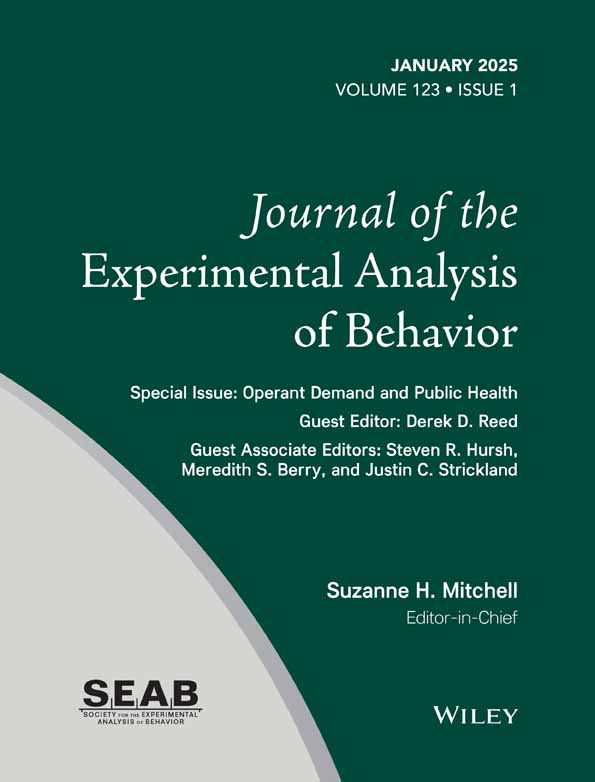Assessing differential personal information value with social discounting and hypothetical payment tasks with university students
Editor-in-Chief: Derek Reed
Handling Editor: Meredith Berry
Abstract
Different personal information types are shared at different rates during a social-discounting task. However, it is unclear whether differences in social-discounting rates between different personal information types are related to differences in valuing personal information. To assess the value of personal information more directly, 160 university student participants completed four hypothetical purchase tasks (HPT) for protecting identification, health, security, and financial personal information at 17 ascending price points and a social-discounting task for one of those four different personal information types. The results for social discounting partially replicated those of a previous study where discounting rates for health information were higher than those for financial information. The results for the HPT largely mirrored those for the social-discounting task. The demand for protecting financial information was significantly higher relative to the that for the other three types of personal information for most demand indices such as the highest price participants were willing to pay for the protection of personal information (break point) and the price where consumption for personal information protection became elastic (Pmax). However, there were no significant relations between social-discounting rate and HPT demand indices. These results show that value may play a role in the observed differences in social-discounting rate for personal information, but additional factors likely contribute to these differences.
CONFLICT OF INTEREST STATEMENT
There are no conflicts of interest to declare.
Open Research
DATA AVAILABILITY STATEMENT
The data sets generated during and/or analyzed during the current study are available from the corresponding author on reasonable request.




